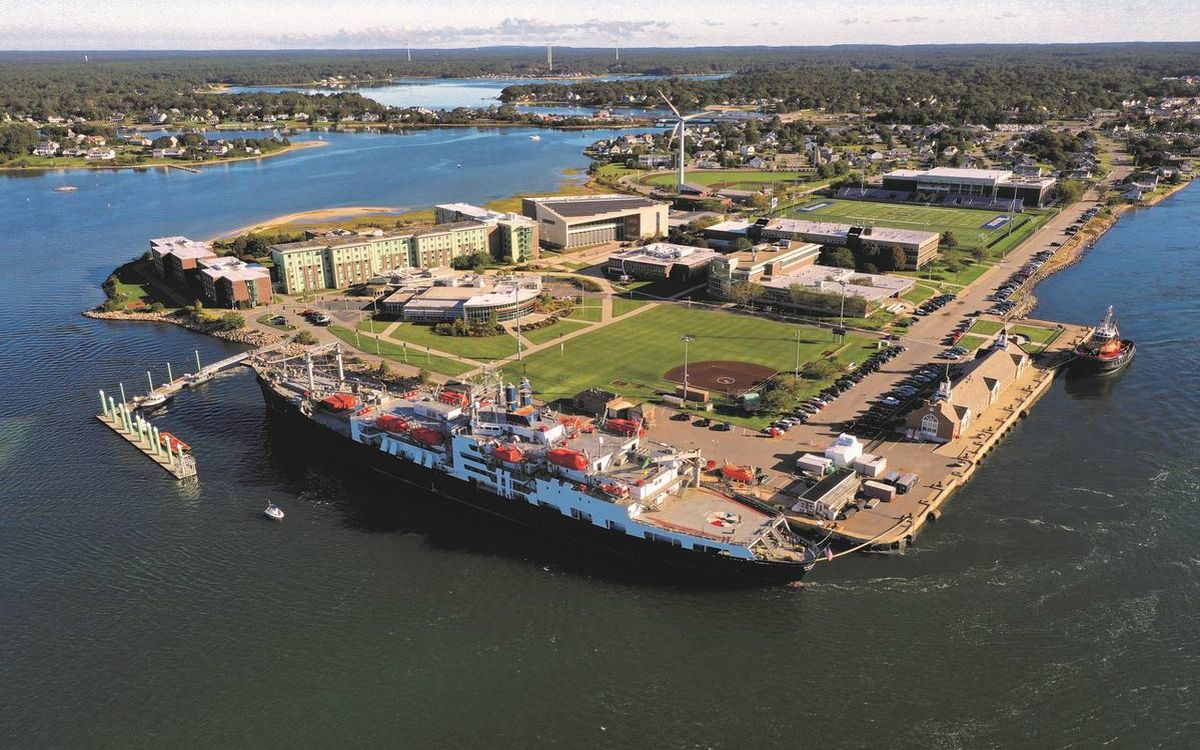Secrets Of Massachusetts’s Maritime Trading Posts

Have you ever wondered about the hidden gems along Massachusetts's coastline? This state, rich in history, offers more than just scenic views and seafood. Massachusetts's maritime trading posts hold stories of adventure, commerce, and culture. From bustling ports to quaint harbors, each location has its unique charm. Imagine walking through cobblestone streets where sailors once traded goods from distant lands. These trading posts played a crucial role in shaping the region's economy and culture. Whether you're a history buff or just looking for a new travel destination, exploring these spots can be both educational and fun. Ready to dive into the past? Let's uncover the secrets of Massachusetts's maritime trading posts.
Discovering Massachusetts's Maritime Trading Posts
Massachusetts, with its rich maritime history, boasts numerous trading posts that once buzzed with activity. These places offer a glimpse into the past, showcasing the state's role in global trade. Let's explore some of these fascinating locations.
Salem Maritime National Historic Site
Salem, known for its witch trials, also played a significant role in maritime trade. This historic site preserves the stories of sailors, merchants, and privateers.
- Derby Wharf: Once the longest wharf in America, it was a bustling hub for trade with the Far East.
- Custom House: Here, customs officials collected duties on imported goods, a vital part of the trading process.
- Narbonne House: This 17th-century house offers insights into the lives of early merchants.
New Bedford Whaling National Historical Park
New Bedford, once the whaling capital of the world, has a rich maritime heritage. This park celebrates the city's whaling history and its impact on global trade.
- Seamen's Bethel: A chapel where sailors prayed before long voyages, it symbolizes the dangers and hopes of maritime life.
- Whaling Museum: Home to extensive exhibits on whaling, including a massive whale skeleton.
- Rotch-Jones-Duff House: This mansion belonged to a prominent whaling family, showcasing their wealth and influence.
Boston's Historic Waterfront
Boston's waterfront has been a center of trade since colonial times. Today, it blends history with modern attractions.
- Faneuil Hall: Known as the "Cradle of Liberty," it was also a bustling marketplace for traders.
- Boston Tea Party Ships & Museum: Relive the famous protest that changed American history.
- Long Wharf: Once the longest wharf in North America, it played a crucial role in Boston's trade.
Gloucester's Maritime Heritage
Gloucester, America's oldest seaport, has a rich fishing and trading history. Its maritime heritage is still evident today.
- Cape Ann Museum: Offers exhibits on Gloucester's fishing industry and maritime art.
- Fitz Henry Lane House: Home of the famous maritime painter, it provides a glimpse into 19th-century seafaring life.
- Gloucester Fishermen's Wives Memorial: Honors the families who supported the fishermen, highlighting the community's resilience.
Provincetown's Trading Legacy
Provincetown, located at the tip of Cape Cod, has a unique maritime history. Its trading posts were vital for the local economy.
- Pilgrim Monument: Commemorates the Pilgrims' first landing in Provincetown, a key event in maritime history.
- Provincetown Museum: Features exhibits on the town's maritime and trading history.
- MacMillan Wharf: Still a bustling port, it connects Provincetown to the sea, continuing its trading legacy.
Nantucket's Whaling and Trading History
Nantucket, an island off the coast, was once the whaling capital of the world. Its trading posts were crucial for the whaling industry.
- Whaling Museum: Offers a deep dive into Nantucket's whaling past, with artifacts and exhibits.
- Old Mill: The oldest functioning mill in the country, it played a role in the island's trade.
- Hadwen House: A grand mansion that belonged to a successful whaling merchant, showcasing the wealth generated by trade.
Plymouth's Historic Trading Posts
Plymouth, where the Pilgrims first settled, has a rich history of trade and commerce. Its trading posts were vital for the colony's survival.
- Plimoth Patuxet Museums: Recreates the original settlement, offering insights into early trade.
- Mayflower II: A replica of the ship that brought the Pilgrims, highlighting the importance of maritime travel.
- Plymouth Rock: Symbolizes the Pilgrims' landing and the beginning of trade in the New World.
Discovering Massachusetts's Maritime Heritage
Massachusetts's maritime trading posts offer a rich history. These sites tell stories of early settlers, bustling ports, and the evolution of trade. Visiting places like Salem, New Bedford, and Gloucester gives a glimpse into the past. Each location has unique attractions, from historic ships to informative museums.
Exploring these areas, you can see how maritime trade shaped the state's culture and economy. The architecture, local cuisine, and community events all reflect this heritage. Whether you're a history buff or just curious, these trading posts provide a fascinating experience.
Plan a trip to Massachusetts's coastal towns. Walk the same streets as sailors and merchants from centuries ago. Enjoy the scenic views, learn about the state's maritime past, and appreciate the enduring legacy of these trading posts. It's a journey through time that enriches your understanding of Massachusetts's history.

